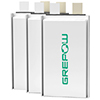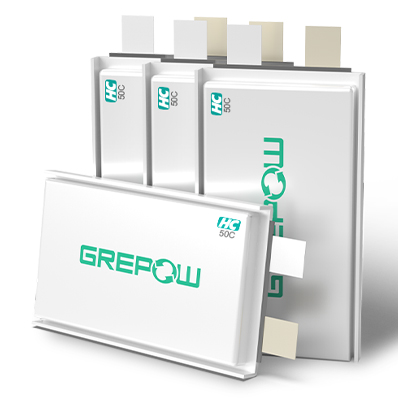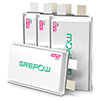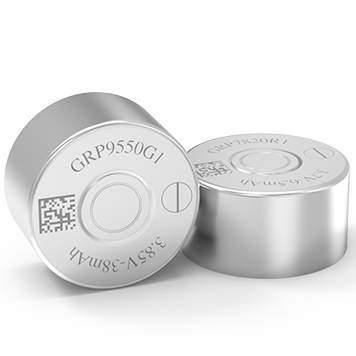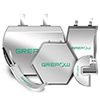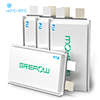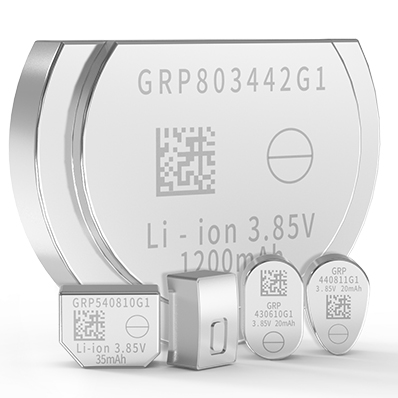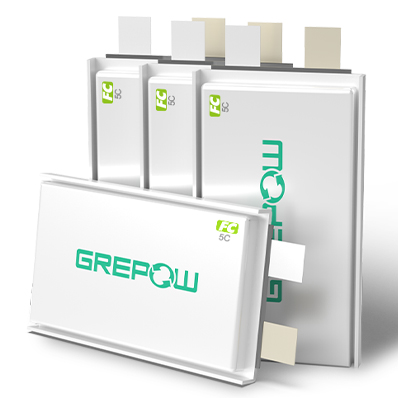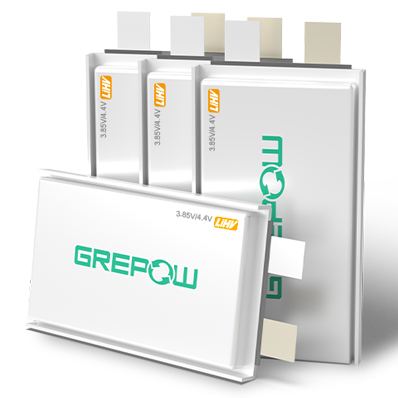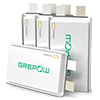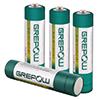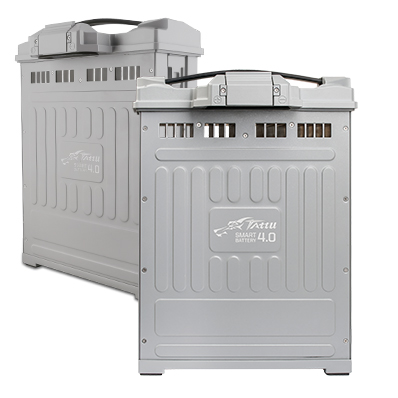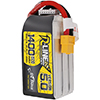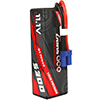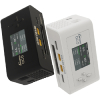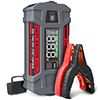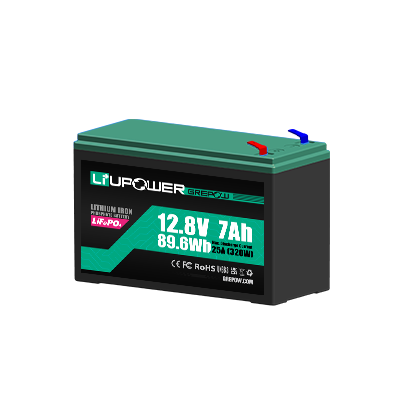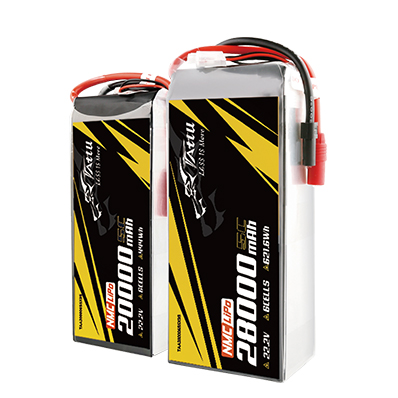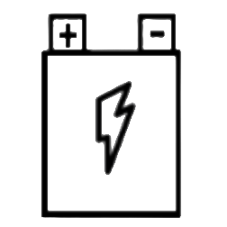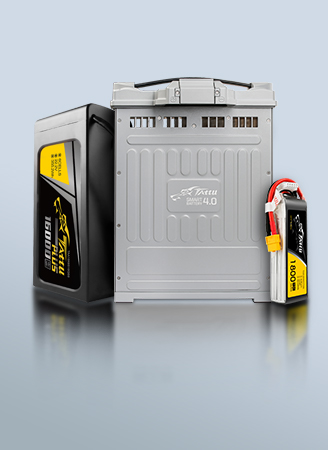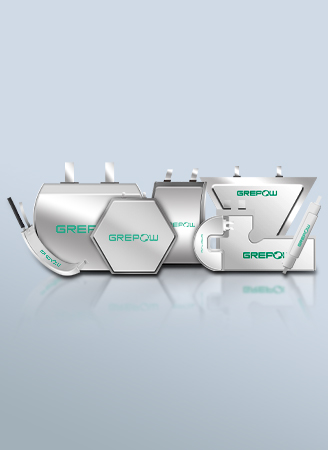Prismatic vs Pouch vs Cylindrical Lithium Ion Battery Cell
Lithium-ion batteries have become the energy storage solution of choice for a myriad of applications, ranging from portable electronics to electric vehicles and renewable energy systems. Within the realm of lithium-ion technology, there are various cell designs, each with its unique characteristics and applications. In this article, we delve into the world of prismatic, pouch, and cylindrical lithium-ion battery cells, comparing their structures, advantages, and use cases.
What is a Prismatic Cell in a Lithium Battery?
A prismatic cell is a type of lipo battery cell that is characterized by its rectangular or square shape. Unlike cylindrical cells, which are tubular, lithium prismatic cells have a flat and often stackable design. The electrode materials are typically arranged in layers, and the cell is enclosed in a sturdy metal casing. These cells are often used in applications where space efficiency is crucial, as their flat shape allows for better packaging in certain devices. It's important to note that lithium ion prismatic cells are just one of several form factors available for lithium-ion batteries. Each form factor has its own advantages and disadvantages, and the choice of cell type depends on the specific requirements of the application.
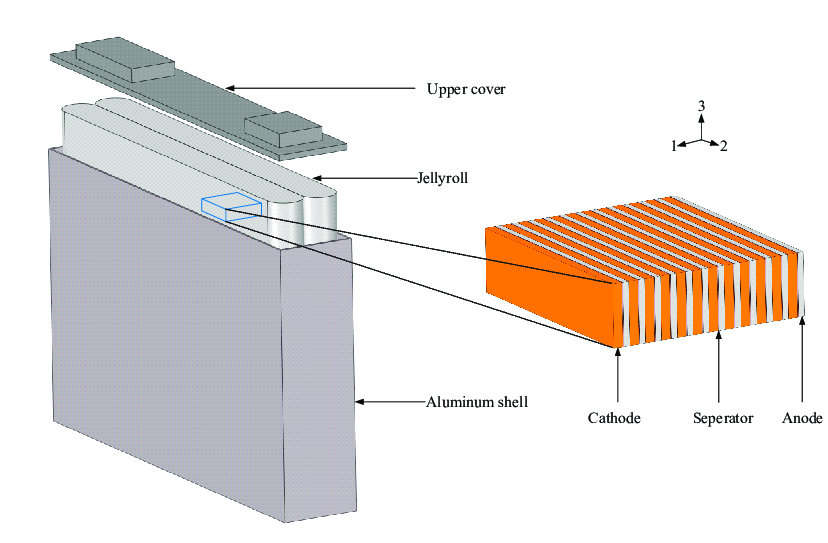
Advantages of Prismatic Cells
◆Space Efficiency: Prismatic cells are known for their space-efficient design, making them ideal for applications with limited space constraints.
◆Stackability: The flat shape of lithium prismatic cells allows for easy stacking, enabling the creation of battery packs with higher energy density.
◆Enhanced Thermal Performance: The flat design aids in heat dissipation, contributing to improved thermal performance.
What is a Pouch Lithium-ion Battery Cell?
A pouch lithium-ion battery cell, also known as a flexible or flat-cell battery, is a type of lithium-ion battery that features a flexible, flat, and pouch-like design. Unlike traditional cylindrical or prismatic cells, pouch cells are generally made by laminating flat electrodes and separators, then sealing them in a flexible, heat-sealed pouch or bag made of a flexible material, often aluminum or other polymers.
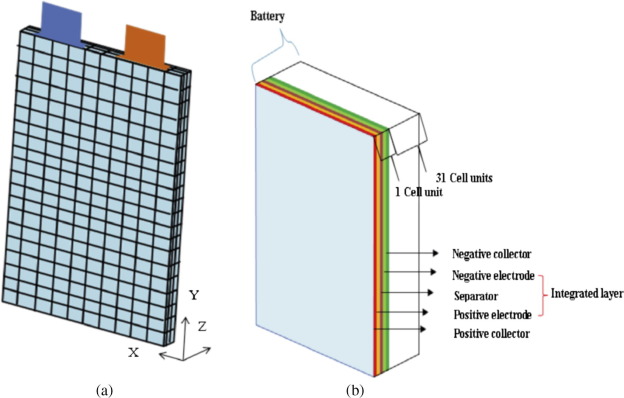
Advantages of Pouch Cells
◆Flexibility and Adaptability: Pouch cell battery can be molded into various shapes, making them highly adaptable to irregular spaces and unconventional designs.
◆Weight Reduction: The absence of a rigid casing reduces the overall weight of the cell, making lithium ion pouch cells a preferred choice for applications where weight is a critical factor.
◆Cost-Effectiveness: The manufacturing process for lithium ion pouch cells is often simpler and less resource-intensive, contributing to cost savings.
What is a Cylindrical Lithium-ion Battery?
A cylindrical lithium-ion battery is a type of rechargeable battery that has a cylindrical shape. These batteries consist of a cylindrical metal casing that houses the internal components, including the positive and negative electrodes, separator, and electrolyte. The most common type of cylindrical lithium-ion battery is the 18650 cell, named for its dimensions: 18 millimeters in diameter and 65 millimeters in length. While the 18650 cell is the most well-known, there are other cylindrical cell form factors, such as 26650 and 2170 cells, each with different dimensions and specifications.
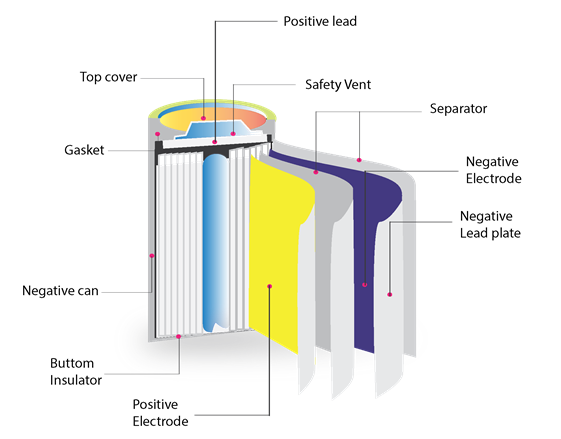
Advantages of Cylindrical Cells
◆Proven Reliability: Cylindrical lithium ion battery cells have been in use for a long time and have a proven track record of reliability and safety.
◆Ease of Manufacturing: The cylindrical design lends itself to mass production, leading to economies of scale and lower manufacturing costs.
◆Widespread Applications: Cylindrical lithium ion battery cells are commonly found in a wide range of applications, including consumer electronics, power tools, and electric vehicles.
Prismatic vs Pouch vs Cylindrical Lithium-ion Battery Cell
Prismatic, pouch, and cylindrical lithium-ion battery cells are three common form factors used in various applications. Each type has its own set of advantages and disadvantages, and the choice of form factor depends on the specific requirements of the application. Here's a brief comparison:
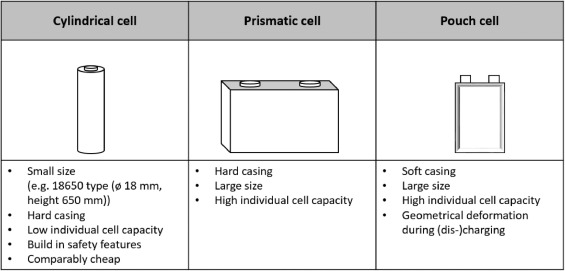
◆Space Efficiency
Prismatic cells are known for space efficiency due to their flat design.
Pouch cells offer adaptability to various shapes and sizes.
Cylindrical cells are compact and easy to stack, making them efficient for specific applications.
◆Flexibility
Prismatic cells are less flexible due to their rigid shape.
Pouch cells are highly flexible and can adapt to unconventional spaces.
Cylindrical cells are moderately flexible but less adaptable to irregular shapes.
◆Weight
Prismatic cells have a moderate weight, depending on the materials used.
Pouch cells are lightweight due to their flexible packaging.
Cylindrical cells have a moderate weight, influenced by the metal casing.
◆Cost
Prismatic cells may have higher manufacturing costs due to their specialized design.
Pouch cells are often cost-effective, thanks to a simpler manufacturing process.
Cylindrical cells benefit from economies of scale and widespread use, contributing to cost-effectiveness.
Conclusion
In the ever-evolving landscape of lithium-ion battery technology, the choice between prismatic, pouch, and cylindrical cells depends on the specific requirements of the application. Each design offers unique advantages, and manufacturers carefully consider factors such as space constraints, flexibility, weight, and cost to determine the most suitable cell type for a given purpose. As technology advances, innovations in lithium-ion cell design continue to drive progress in energy storage solutions across diverse industries. As a global leader in lithium battery cell manufacturing, Grepow offers professional customization solutions for lithium-ion battery packs and Battery Management Systems (BMS), catering to your specific application requirements. If you have any questions or needs, please feel free to contact us at info@grepow.com.
Related Articles:
Coin Cell vs Button Cell vs Pouch Cell: Understanding the Differences
What is a Silicon Anode Lithium-Ion Battery?
Sodium-ion Battery vs Lithium-ion Battery: What’s the Difference?
What Is a Lithium-ion Battery Cell, Battery Module, and Battery Pack?
Lithium-ion Battery Cycle Life VS. Calendar Life VS. Shelf Life
Related Articles
-
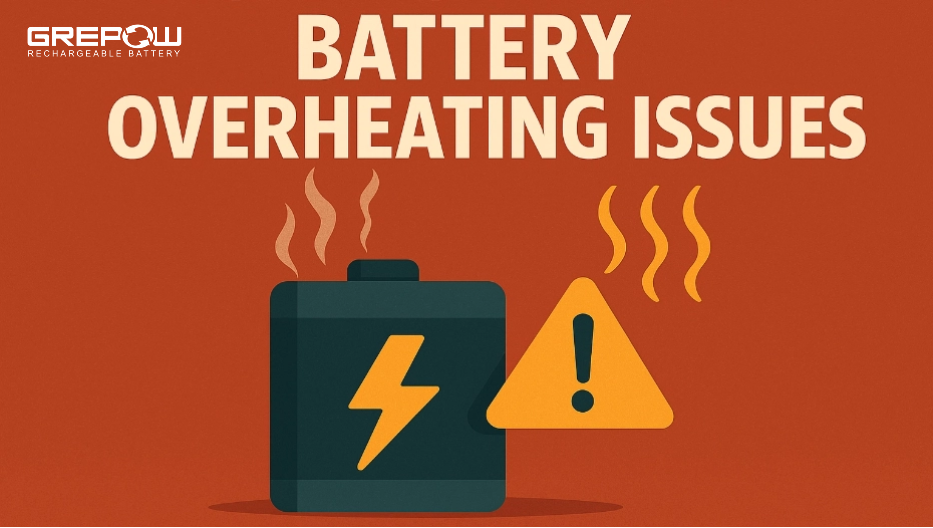
How to Handle Battery Overheating Issues?
2025-08-12 -
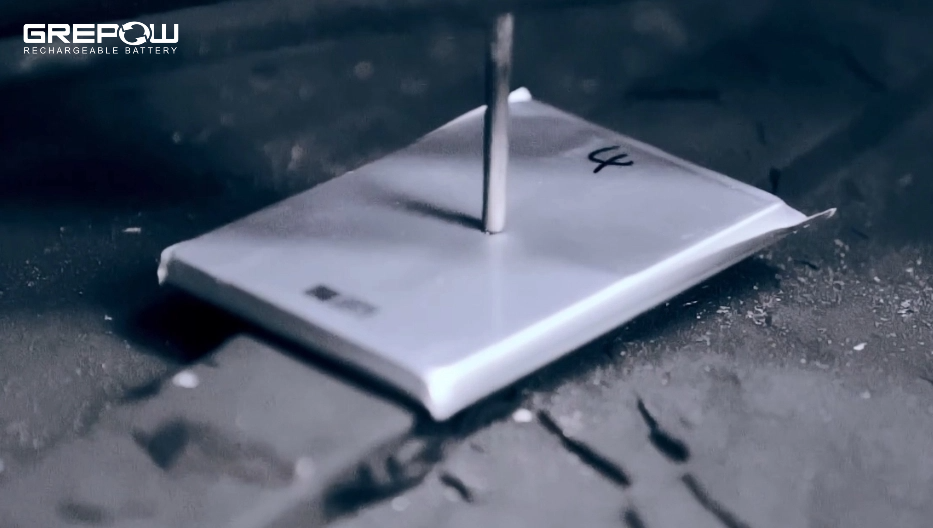
An In-Depth Look at the LiPo Battery Testing Process
2025-08-07 -
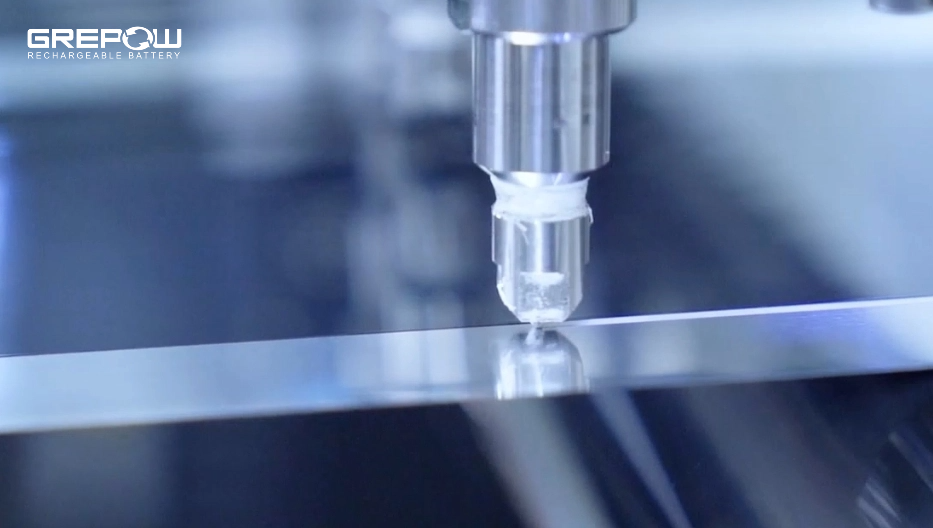
How Is a LiPo Battery Manufactured?
2025-08-06
Related products
-
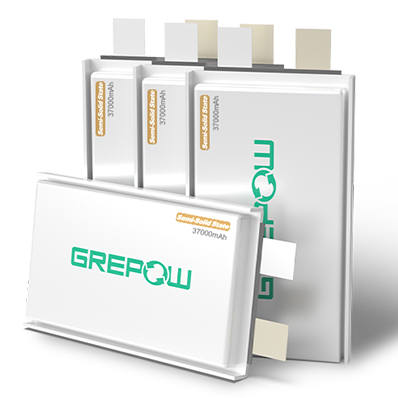
37000mAh Semi-Solid State High Energy Density Battery
-
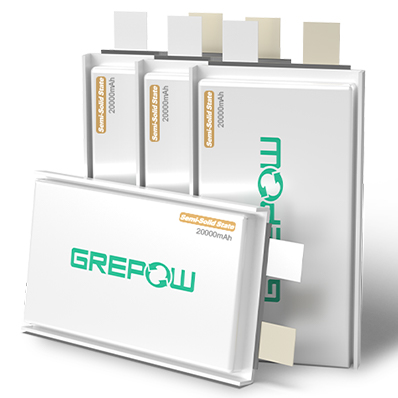
20000mAh Semi-Solid State High Energy Density Battery
-
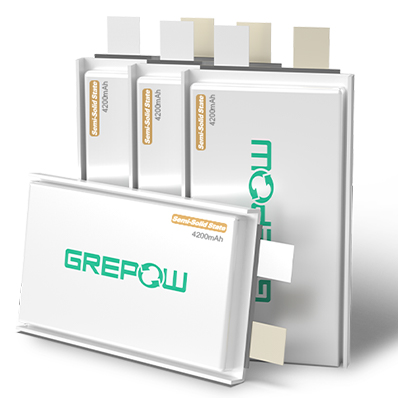
4200mAh Semi-Solid State High Energy Density Battery

